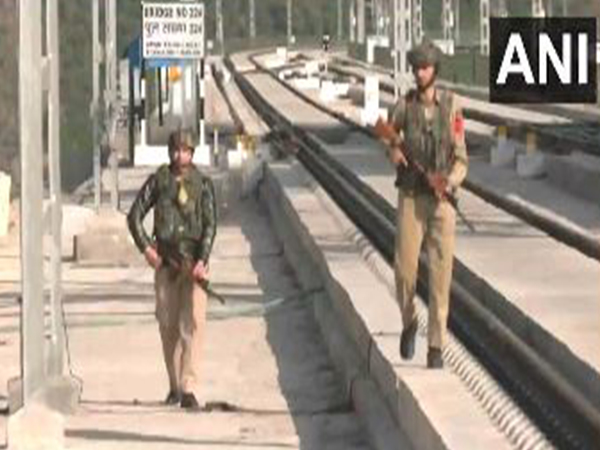J-K: LG Sinha seeks women empowerment through quality education
Jan 27, 2023

Jammu and Kashmir [India], January 28 : Lieutenant Governor of Jammu and Kashmir, Manoj Sinha emphasised the need to empower girls through quality education.
On the occasion of National Girl Child day on Tuesday, Governor Sinha shared a message wherein he stressed on empowering women through quality education for helping develop their leadership skills and become role models.
National Girl Child Day has been celebrated every year throughout the country since 2008. The initiative focuses on addressing the challenges that girls face because of gender biases.
The day also aims at changing the attitude of society towards girls and provides an opportunity to highlight the inequalities that they face. It is also intended to promote awareness among girls about their rights, education, health, and nutrition.
As per the reports, the day was observed symbolically in Jammu and Kashmir till 2019 and nothing crucial was done for the women here to help overcome day-to-day obstacles.
After the outbreak of Pakistan-sponsored terrorism in J-K during the early nineties, girls here faced immense hardships and difficulties as the gun-toting terrorists who used to appear on the streets of Kashmir issued diktats to keep them away from educational institutions and workplaces. They also tried to enforce the rule of wearing a veil (burqa) and the ones who resisted had to face acid attacks and sometimes even bullets.
After the abrogation of Article 370 from Jammu and Kashmir on August 5, 2019, the Centre left no stone unturned to make the lives of women easier. They have been provided with multiple opportunities to build their lives and compete with men in every field.
For making women stand strong among a group of men, the education schemes launched by the Centre have helped them go to educational institutions and the self-employment schemes make them self-reliant. The women here also get reservations in government jobs, thus paving way to help them equal to the men.
The government has also created a system in the last three years that would empower the girls and aims at raising their capacity to contribute towards nation-building.
The scheme-- Beti Bachao Beti Padhao, Ladli Beti-- have helped thousands of girls across the Union territory at tender age aiming to protect them from the day she takes birth.
As per the Sample Registration System (SRS) Statistical Report, 2020 by the Registrar General of India (RGI) last year, the Sex Ratio at birth in Jammu and Kashmir has also significantly increased. The tuition fees for girl students upto 12th standard studying in government schools has been exempted and it has benefitted more than 5.5 lakh girls. More than 85 Kasturba Gandhi Balika Vidyalaya and an equal number of girls' hostels have been established in the rural areas to reduce the dropout rate of the females from the schools.
The Super-75 scholarship scheme, launched as a part of the 'Azadi Ka Amrit Mahaotsav' also sponsored many meritorious girls from poor families seeking admission in professional disciplines like medicine, engineering, and skill acquisition in Industrial Training Institutes [ITI] and humanities. It has also helped young women reach professional colleges on the basis of merit and chase their dreams.
'Tejaswini'- a scheme under the 'Mission Youth' programme was launched to provide financial assistance of upto Rs 5 lakhs to girls in the age group of 18 to 35 years to start their own business. Besides providing the funds, the government (under this scheme) also bears 10 per cent cost of the project and pays the annual interest of the loan.
So far, There are more than 56,000 Self Help Groups in Jammu and Kashmir and nearly 5.5 lakh women are associated with these groups.
The government has also put in dedicated efforts to end the disparity between men and women in the Union Territory and its results are evident.
Now, almost every girl under the age of 14 years is entitled to free and mandatory schooling in the Union Territory ever since its reorganisation as the Right To Education was extended to the Himalayan region giving every girl child the right to acquire elementary education (classes 1-8) in a neighbourhood school under the Right of Children to Free and Compulsory Education Act of 2009.
An awareness programme was also created about the Sukanya Samriddhi Yojana which provides every girl child financial stability and independence. This initiative has encouraged parents and guardians to put money into their daughter's Sukanya Samriddhi account from the moment she is born, for her education and marriage.

















